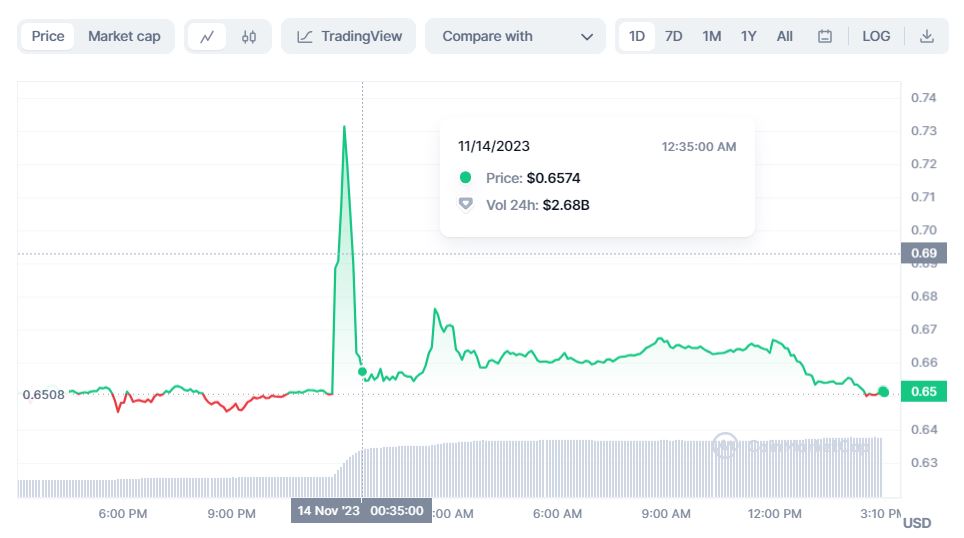Traders invested in XRP futures took a significant hit in the past 24 hours, losing an estimated $7.26 million as prices experienced wild swings following unconfirmed rumors of a BlackRock (BLK) exchange-traded fund (ETF) filing. The liquidations, which were fourth behind those of bitcoin (BTC), ether (ETH), and Solana’s SOL futures, highlight the heightened volatility and speculation surrounding the cryptocurrency market.
The rumors of a BlackRock XRP ETF emerged earlier this week, sending XRP prices soaring by over 10%. However, the excitement was short-lived as prices quickly retraced, leaving many traders with losses. The liquidations, which occur when traders’ positions are automatically closed due to insufficient margin, underscore the risks associated with futures trading, particularly in volatile markets like cryptocurrencies.

While the BlackRock ETF rumors have not been officially confirmed, they have undoubtedly had a significant impact on XRP prices and trader sentiment. The potential for a major institutional investor like BlackRock to enter the XRP market has fueled speculation and anticipation, leading to increased trading activity and price volatility.
It is important to note that the cryptocurrency market is notoriously susceptible to rumors and speculation, and any unverified information can have a significant impact on prices. Traders should always exercise caution and conduct thorough research before making any investment decisions.
Also Read: Ripple vs. SEC: Brad Garlinghouse Says Company Prepared to Go to Supreme Court in Fight for XRP
Despite the recent setbacks, XRP remains one of the most popular cryptocurrencies, with a significant market capitalization and a strong community of supporters. The long-term prospects for XRP depend on a number of factors, including the overall health of the cryptocurrency market, regulatory developments, and the adoption of XRP by businesses and institutions.
In the meantime, traders should be prepared for continued volatility in the XRP market, and they should carefully manage their risk exposure.



